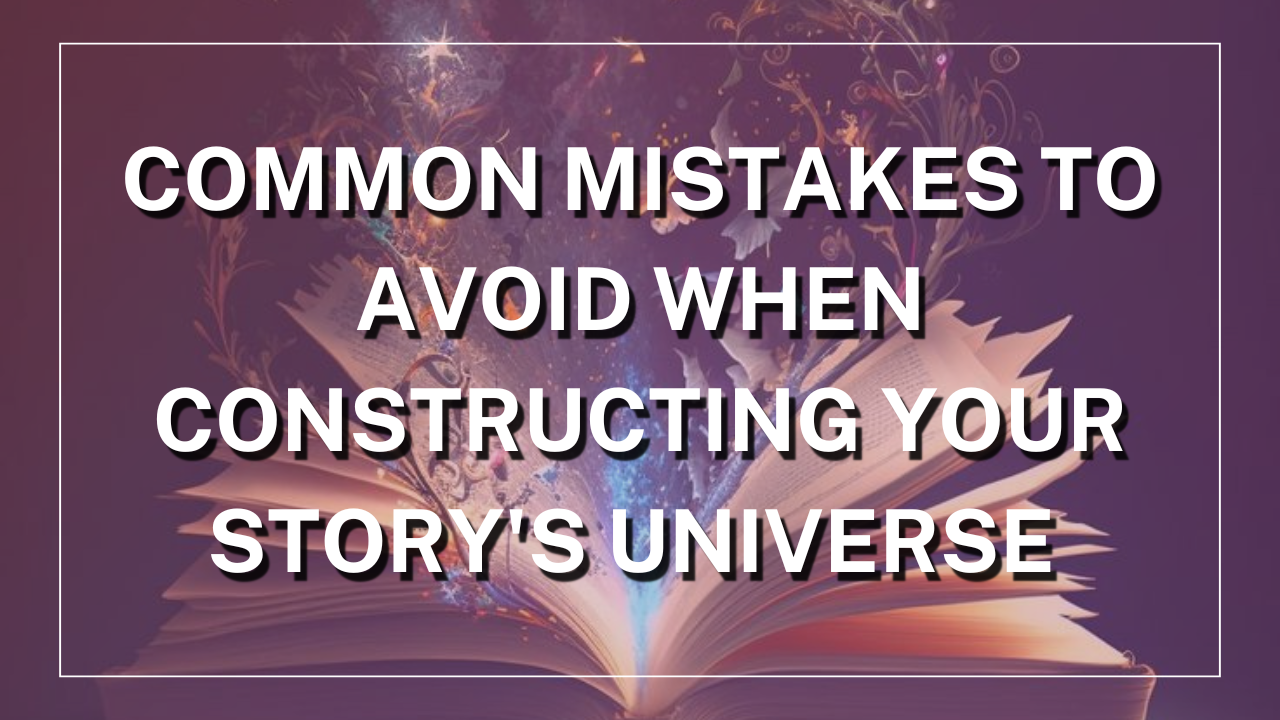Writing fiction gives authors the exciting opportunity to construct entire realms from the ground up, complete with exclusive civilizations, histories, and natural laws. However, meticulous planning and attention to detail are necessary to create a convincing and captivating fictional environment.
Here are some typical blunders to steer clear of, if you want your fantasy universe to engross your readers.
1. Inconsistent World Building:
Readers may become disoriented and lose interest in your fictitious world if there are contradictions in the laws, the geography, or the history. Create a thorough world-building bible that describes the laws, politics, society, geography, and culture of your universe. While writing, make sure to consult these rules frequently to maintain consistency. It is better to make a reference note to avoid any contradictory plots that might make your story unreal to its universe.
One such example of an inconsistent world can be seen in the “Harry Potter” series by J.K. Rowling. In “Harry Potter and the Prisoner of Azkaban”, the Time-Turner is used to travel back in time. However, in later books, the existence of such a powerful device raises questions about why it wasn’t used to prevent major events, such as the deaths of key characters.
2. Overloading Information:
Readers may become overwhelmed by too much background information introduced all at once. You should avoid this by using dialogue, actions, and descriptions, to progressively and organically reveal the intricacies of your universe. Instead of long explanatory chapters, let readers discover the universe through the experiences of the characters. This will allow your story to be full of surprises and will keep your readers engaged.
J.R.R. Tolkien’s “The Silmarillion” serves as an illustration. This novel is full of complex histories, characters, and mythology. Its dense exposition and abundance of background information can be overwhelming and challenging to process.
3. Disregarding Internal Logics:
Readers’ interest can be broken by things or events that don’t follow the universe’s stated norms. Clearly define the rules that govern your universe and follow them. If magic is real, describe its expenses and restrictions. If advanced technologies exist, be sure their uses and outcomes make sense. If you have an element talked about or described in the story make sure it plays a role in the story and is not just an extra prop of the story.
“The Da Vinci Code” by Dan Brown mixes real historical facts with fiction in ways that sometimes contradict known history and established symbols, leading to confusion about the internal logic of the story.
4. Neglecting Characters:
A lack of emotional engagement may arise from concentrating just on the world and ignoring how the characters interact with and experience it. Demonstrate how the world influences the decisions, beliefs, and lifestyles of your characters. Make the world-building aspects pertinent to the story and the character development. Create thriving, varied civilizations with unique social structures, languages, customs, and beliefs. Examine how each society has been shaped by history, geography, and interactions with other cultures.
For example, in “The Eye of the World” by Robert Jordan, the rich descriptions of geography, history, and cultures sometimes take precedence over the emotional depth and growth of the characters, leading to a narrative that can feel more like a travelogue than a character-driven story.
5. Writing without Research and Preparation:
Writing indecisively without enough planning might lead to poorly established plot points and gaps in the narrative. Spend some time carefully organizing your world and doing relevant research before you start writing. Make sure the universe is coherent and interesting by creating maps, timelines, and in-depth descriptions of the key elements. Using too many or too clichéd elements can make your universe seem uninspired and unimaginative. Even though some cliches are unavoidable, try to add your own unique perspective to them. Go against the trend and craft a world that is both distinctive and captivating by fusing well-known elements with original ideas.
Building a fictitious universe is a challenging but worthwhile endeavor. You may create a rich, engaging universe that improves your story and draws readers in by avoiding these frequent blunders. Your imaginary world can become an engaging and essential component of your storytelling with proper preparation and attention to detail.

